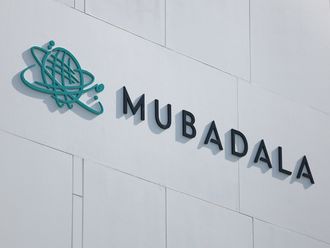
Dubai: The UAE's private sector activity had another round of growth in April, but businesses will need to overcome some of the disruptions brought on by the April 16 rainfall, the highest experienced by the country in 75 years. The weather conditions also ‘contributed to a sharp rise in backlogs of work’, says the latest S&P Global PMI (Purchasing Managers Index) data reading.
"Backlogs of work increased considerably in April, which was linked to temporary business disruptions and elevated pressure on operating capacity," said Tim Moore, Economics Director at S&P Global Market Intelligence. "Non-energy businesses are nonetheless still highly upbeat about their year ahead growth prospects.
"Many commented on strong sales pipelines and a swift recovery from the impact of heavy rainfall."
Job creation gets a boost
Through the first-half of April, job creation within the UAE private sector ticked higher, most of which was brought on by new projects getting off the ground. There was also the 'resilient demand conditions' lending a hand.
"Pressure on operating margins remained a challenge, as price discounting continued despite faster rises in purchasing costs and salary payments," said Moore.
April PMI
The PMI score for April was at 55.3, from 56.9 in March, indicating further expansion for businesses on their capex plans, recruitments, new order wins, etc. (A score over 50 suggests business activity to be in the growth mode.)
But there are still some hurdles to clear as new order growth eased considerably since March, S&P Global reports, 'with the loss of momentum often linked to the impact of heavy rainfall and floods on customer demand'.
The overall rate of new business growth was the slowest for 14 months. "A combination of temporary business disruptions and strong overall workloads resulted in another sharp rise in backlogs during April."
Cost spikes
The April data also show faster rises in purchasing prices and staff costs. On raw material prices, the cost inflation has been on for some weeks, and which also reflect changes brought on by the Red Sea crisis. Businesses have also been making efforts to compensate employees for higher living costs.
"At the same time, average prices charged decreased again in April, albeit at the slowest pace so far in 2024," says the report. "Price discounting was attributed to competitive market conditions and subsequent efforts to stimulate sales."
More to follow...












